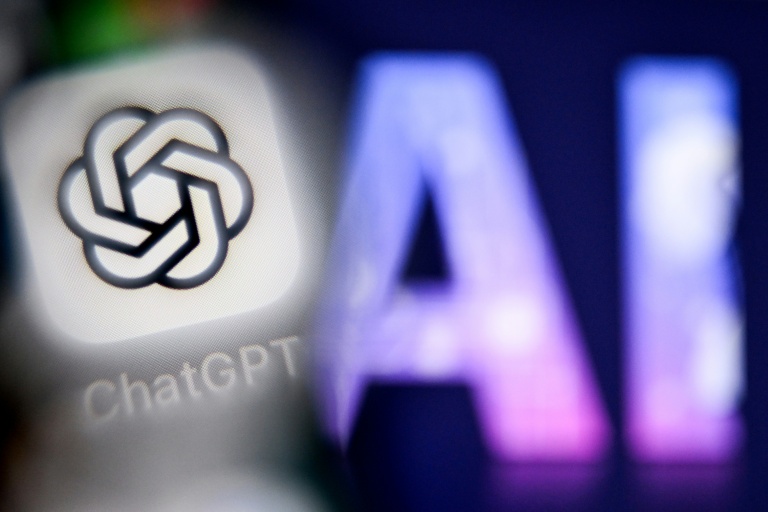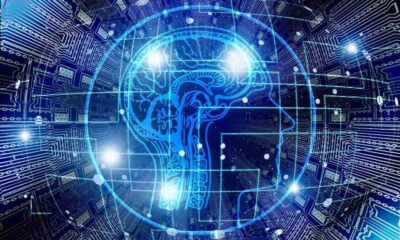Science
Gen Z Turns to AI for Emotional Support, Raising Concerns

A growing trend indicates that many members of Gen Z are increasingly relying on generative AI for emotional support. Tools such as ChatGPT, initially designed for productivity, are now serving as confidants and companions. This shift raises questions about the implications of substituting human interaction with artificial entities, particularly as mental health challenges escalate within this demographic.
Since its public launch in late 2022, ChatGPT has amassed a remarkable following, reaching 100 million users within just two months. By early 2025, this number doubled, with weekly active users soaring to 800 million. Data indicates that a substantial portion of these users are under 25, marking Gen Z as a significant driver of AI engagement.
The rise in AI usage coincides with a notable mental health crisis among young people. According to the Jed Foundation, approximately 42% of Gen Z respondents report persistent feelings of sadness or hopelessness. With limited access to affordable therapy and overstretched mental health systems, the appeal of a free, always-available AI mimicking empathy is evident. Nonetheless, while AI can provide an accessible outlet, it does not replace the therapeutic value offered by human interaction.
AI’s allure as an emotional companion lies in its perceived neutrality. It listens without interruption or judgment and retains no memory unless instructed. However, this illusion of safety may obscure deeper issues. Heavy users of ChatGPT have reported feelings of loneliness that exceed those of casual users or non-users. As noted in a study published by Psychology Today, AI companions can inadvertently intensify feelings of isolation over time. By presenting an idealized, frictionless version of human connection, AI risks setting unrealistic expectations for real-world relationships.
Concerns are now emerging regarding emotional dependence on chatbots. Patterns indicate that some users may be substituting chatbot interactions for human connections rather than supplementing them. This behavioral shift extends beyond personal interactions, infiltrating professional environments. Young employees, particularly those in remote or hybrid roles, are increasingly using ChatGPT to draft emails, prepare for performance reviews, or navigate challenging conversations. While this can alleviate anxiety, it may simultaneously diminish interpersonal confidence and deepen social isolation.
The cultural implications of this reliance on AI are profound. For a generation already grappling with decreased face-to-face interaction, depending on AI for emotional and professional communication may hinder the development of authentic relationships. As AI continues to advance, its role in the emotional lives of Gen Z users is becoming more pronounced. Individuals are personalizing their chatbot experiences, assigning names, backstories, and emotional roles to AI systems. Platforms like Replika and Character.AI are increasingly being used to simulate relationships, including romantic partners and therapists.
While the emotional realism of these interactions can be striking, the potential side effects cannot be overlooked. Users frequently report feeling more isolated after engaging deeply with AI “friends.” The idealized nature of these interactions—where AI always listens and validates—can undermine tolerance for the complexities of human relationships. Some Gen Z users are now turning to ChatGPT not only for productivity but also as a daily mental health outlet. While some report improved moods and reduced anxiety, others experience a hollow after-effect, feeling good in the moment but more disconnected in the long run.
Currently, there is no regulation governing how generative AI addresses mental health conversations. Tools like ChatGPT are not trained mental health professionals. They may struggle to identify suicidal ideation consistently and cannot ensure user safety. A notable incident in 2024 in France, involving a young user who received inadequate AI responses during a mental health crisis, reignited discussions about the ethical boundaries of AI support. As technology companies disclaim responsibility, the regulatory void surrounding AI’s role in emotional support is becoming increasingly apparent.
The legal and moral ambiguities present significant risks. While AI systems are often treated like emotional caregivers, they lack the necessary safeguards for such roles. For some, especially those in underserved communities or mental health ‘deserts,’ ChatGPT can provide a critical sense of connection. For others, it may act as a crutch that weakens emotional resilience.
The pressing question remains: should AI be used for emotional support, or should it be seen as a substitute for human empathy? While AI companionship is not inherently detrimental, it necessitates clear boundaries. As Gen Z increasingly looks to AI not just for communication but also for validation and emotional connection, society must confront whether it is addressing loneliness or simply embedding it more deeply into everyday life.
-

 Politics3 weeks ago
Politics3 weeks agoSecwepemc First Nation Seeks Aboriginal Title Over Kamloops Area
-

 World4 months ago
World4 months agoScientists Unearth Ancient Antarctic Ice to Unlock Climate Secrets
-

 Entertainment5 months ago
Entertainment5 months agoTrump and McCormick to Announce $70 Billion Energy Investments
-

 Lifestyle4 months ago
Lifestyle4 months agoTransLink Launches Food Truck Program to Boost Revenue in Vancouver
-

 Science5 months ago
Science5 months agoFour Astronauts Return to Earth After International Space Station Mission
-

 Technology3 months ago
Technology3 months agoApple Notes Enhances Functionality with Markdown Support in macOS 26
-

 Top Stories2 months ago
Top Stories2 months agoUrgent Update: Fatal Crash on Highway 99 Claims Life of Pitt Meadows Man
-

 Lifestyle3 months ago
Lifestyle3 months agoManitoba’s Burger Champion Shines Again Amid Dining Innovations
-

 Politics4 months ago
Politics4 months agoUkrainian Tennis Star Elina Svitolina Faces Death Threats Online
-

 Sports5 months ago
Sports5 months agoSearch Underway for Missing Hunter Amid Hokkaido Bear Emergency
-

 Politics4 months ago
Politics4 months agoCarney Engages First Nations Leaders at Development Law Summit
-

 Technology5 months ago
Technology5 months agoFrosthaven Launches Early Access on July 31, 2025





















